

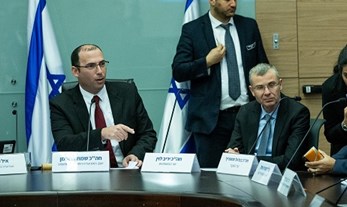
How is this the “End of Democracy?"
Written By: Prof. Yotam Margalit
Precisely what legal clause Levin and company will choose to achieve their goals isn’t really important, but the larger implications certainly are.

Israel is Still a Free Country – But Now With a Warning Sign
Written By: Dr. Assaf Shapira
A top democracy index hasn't yet ranked Israel with Hungary. That will change if the majority becomes all powerful
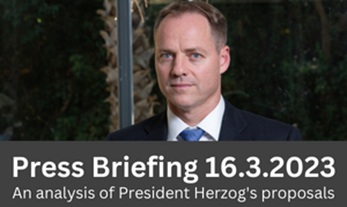
International Press Briefing with Yohanan Plesner, President of IDI
An analysis of President Herzog's reform compromise proposal from March 15th and public and political response.
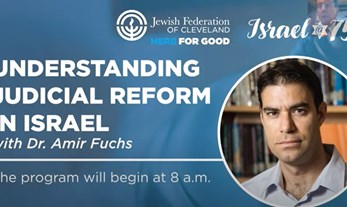
Understanding Judicial Reform in Israel with Dr. Amir Fuchs
The Jewish Federations of Cleveland was joined by Dr. Amir Fuchs, senior researcher the Israel Democracy Institute at the Center for Democratic Values and Institutions to discuss how Israel is undergoing many changes in its government.
Moderated by Judge Dan A. Polster.
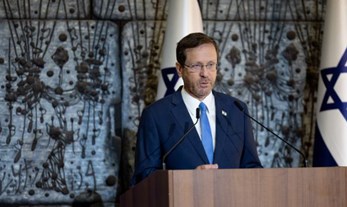
Statement by the Israel Democracy Institute on President Herzog’s Proposal
The Israel Democracy Institute congratulates President Isaac Herzog on his extraordinary efforts. While the President’s plan contains some problematic elements, if it were to be adopted in its entirety as a package, we would support it because it safeguards our democracy and bolsters key elements of our constitutional foundations.
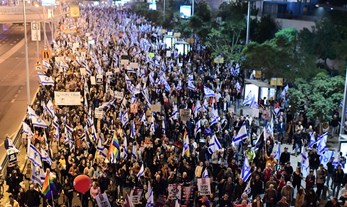
Everyone’s Talking from a “Position”—Except for Us
Written By: Prof. Yuval Feldman
The concepts of a “position” and “conflict of interest” crop up frequently in the discussion of the judicial revolution - that is why the facts are so important
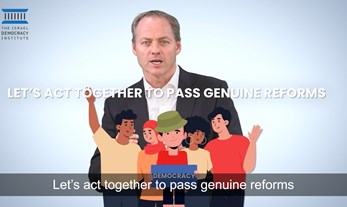
Constitutional Reform in Israel - How should it be done?
President of IDI, Yohanan Plesner, describes the judicial reforms that would make Israeli democracy stronger and transform a moment of crisis into an historical constitutional opportunity.

Fighting the Judicial Reform for Zionism
Written By: Dr. Amir Fuchs
The battle against the judicial overhaul is not being waged only to safeguard democracy, it is also a fight to preserve Zionism itself.

Government of the people means government of ALL the people
Written By: Prof. Gideon Rahat
The current battle in Israel is not between left and right. It is being waged between those who embrace democracy and those who want to make one last use of democracy to institute majority rule.

Constitutional Reform in Israel - How should it be done?
President of IDI, Yohanan Plesner, describes the judicial reforms that would make Israeli democracy stronger and transform a moment of crisis into an historical constitutional opportunity.

Less than a Third Optimistic about Israel’s Internal Security
Written By: Prof. Tamar Hermann, Dr. Or Anabi
44% of Israelis are optimistic about Israel’s external security– only 28% are optimistic regarding Israel’s internal security.
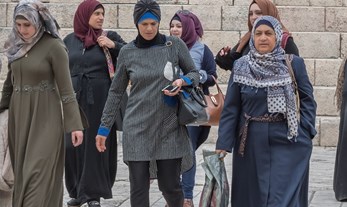
The Judicial Revolution and Arab Society in Israel
Written By: Adv. Oded Ron, Dr. Muhammed Khalaily
Reducing the possibility of invalidating legislation and the rest of the initiatives will further undermine the protection of the rights of the Arab minority in Israel, whose trust in the judicial system has steadily decreased in recent years - but is still high in relation to trust in other institutions.
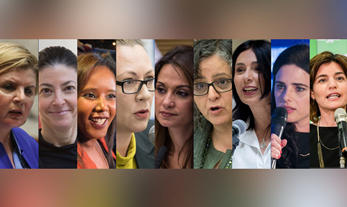
The Decline in Women’s Representation in Israel's Political System: Analysis
Written By: Prof. Ofer Kenig
Just one year ago, women’s representation in Israeli politics soared to an all-time high—in the Knesset, in the Government, and in local authorities. But today, we are going backwards. The approach of International Women’s Day is an appropriate time to look at the current situation and express concern as to this trend.

The Levin-Rothman plan 101 (yes, this will be on the test)
Written By: Dr. Dana Blander
Some actual facts for college and university students whose teachers are under attack for teaching actual facts
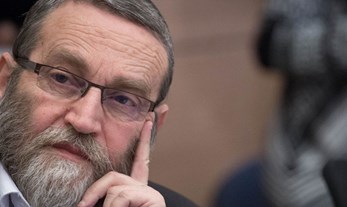
Israel's Death Penalty, Haredi Ideology and Yisrael Beytenu's Role
Written By: Eliyahu Berkovits
The death penalty for terrorists bill may pass the Knesset in what may be a dream come true for some and a horrific nightmare for others.
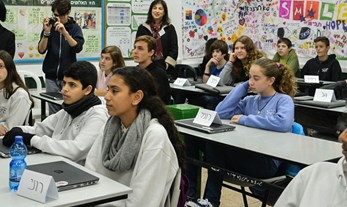
Israel's Teachers Must Not Stifle Discussions on Current Events
Written By: Dr. Tammy Hoffman
If the teachers in the state system do not address current events and introduce their pupils to diverse worldviews, Israeli schools will continue to exist as a bubble.
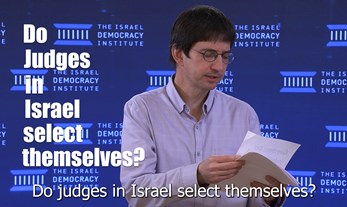
How Are Judges Selected in Israel?
How Are Judges Selected in Israel?
Dr. Guy Lurie Answers a Few Common Questions
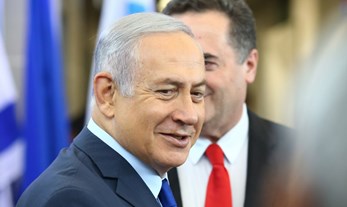
What is “Incapacity” and what are the Implications of a Prime Minister’s Incapacity?
Written By: Dr. Amir Fuchs
When is the Attorney General empowered to declare that the Prime Minister is incapable of fulfilling his duties? When does temporary incapacity become permanent? What has the Court ruled in the past about a declaration of incapacity concerning Benjamin Netanyahu?
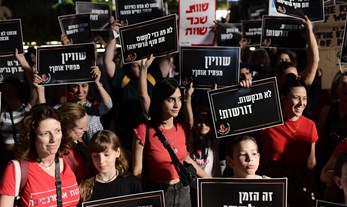
The Ramifications of the Judicial Reform for the Status of Women in Israel
Written By: Adv. Anat Thon Ashkenazy
A professional opinion by the Israel Democracy Institute presented in advance of the session of the Knesset Committee on the Status of Women and Gender Equality on February 20, 2023
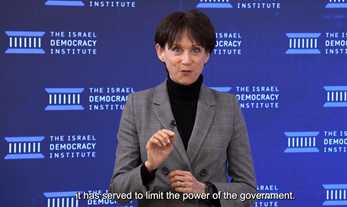
How does the judicial system in Israel work?
Prof. Suzie Navot explains the judicial overhaul and its dangers in a way we can all understand.
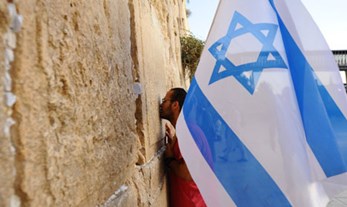
Making Ministry Legal Advisors Political Appointees Goes Against Jewish Law
Written By: Prof. Benjamin Porat
The question of how much power the government should wield was one that generations of halakhic decisors (poskim) worked to curtail.
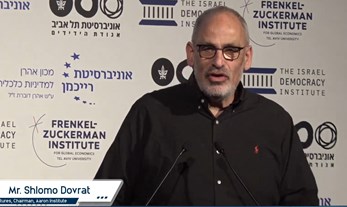
How will the judicial reform impact Israel's hi-tech sector? Shlomo Dovrat
How will the judicial reform impact Israel's hi-tech sector? Shlomo Dovrat, co-founder and General Partner at Viola Ventures, Chairman of the Aaron Institute for Economic Policy explains the crucial role the hi-tech industry plays in Israel's economy and the stark implications of the judicial overhaul on its future.
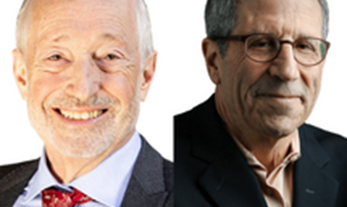
Nobel Prize Winning Economists on Implications of the Judicial Overhaul
Prof. Eric Maskin and Prof. Paul Milgrim, both Nobel Prize laureates, express their concern over the proposed judicial overhaul during a special conference held at IDI on the econonic consequences of the reform.

The Judicial Reforms Implications on Israel's Standing in the International Courts
Written By: Prof. Yuval Shany
The Israeli judicial system’s independence and professionalism protect IDF commanders from prosecution in international courts. A close look at the planned judicial overhaul leads to the conclusion that if implemented it would increase the risk to Israeli citizens and make it harder for the country to protect them in the future.

Death Penalty for Terrorists Bill is Not Constitutional and Will Deal Grievous Harm to Israel
Written By: Prof. Yuval Shany, Prof. Mordechai Kremnitzer, Prof. Amichai Cohen, Dr. Amir Fuchs
Israel has only used capital punishment twice, with the last time being in 1962 when Nazi war criminal Adolf Eichman was put to death. IDI experts weigh in on a bill that would make capital punishment mandatory for convicted terrorists.

How Often Does the Supreme Court Invalidate Legislation?
Written By: Prof. Yuval Shany, Dr. Guy Lurie
In recent years, there have been attempts to enact the “override clause” in Israel, a legal provision that would enable the Knesset to override the Supreme Court’s rulings in cases in which it strikes down legislation. This week the Constitution, Law and Justice Committee is discussing a draft of such a law.

Only a Minority of Israelis Support the Proposed Judicial Overhaul
Written By: Prof. Tamar Hermann, Dr. Or Anabi
66% of Israelis: Supreme Court should have power to strike down laws that are incompatible with Israel’s Basic Laws | On Judicial Selection Committee: 63% Support Current Principle Requiring Agreement between Politicians and Justices.
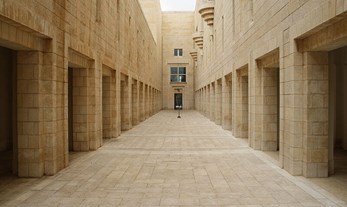
No More Legal ‘Gatekeepers’? Plans to Downgrade the Status of Government Legal Advisers in Israel
Written By: Prof. Amichai Cohen, Prof. Yuval Shany
Downgrading the independence of government legal advisers is not among the highest-profile proposals to reform the Israeli legal system being advanced by Israel’s new right-wing government, but weakening the status of government legal advisers is actually an important and troubling part of the government’s package of proposed reforms.
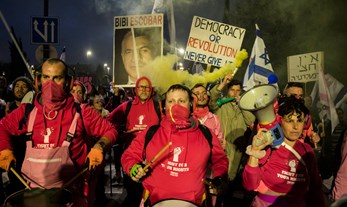
Why are Liberal Israelis so Terrified of Bibi’s Judicial Reforms?
Written By: Prof. Amichai Cohen
The proposed legislation evicerates the only check on executive and legislative power in Israel.
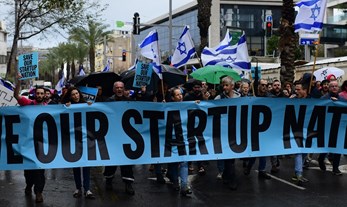
Checks and Balances, Public Corruption, and Economic Development
Written By: Prof. Itai Ater, Dr. Tzachi Raz
Increased corruption and damage to Israel's economy - four simple figures with important lessons for Israel’s judicial overhaul

